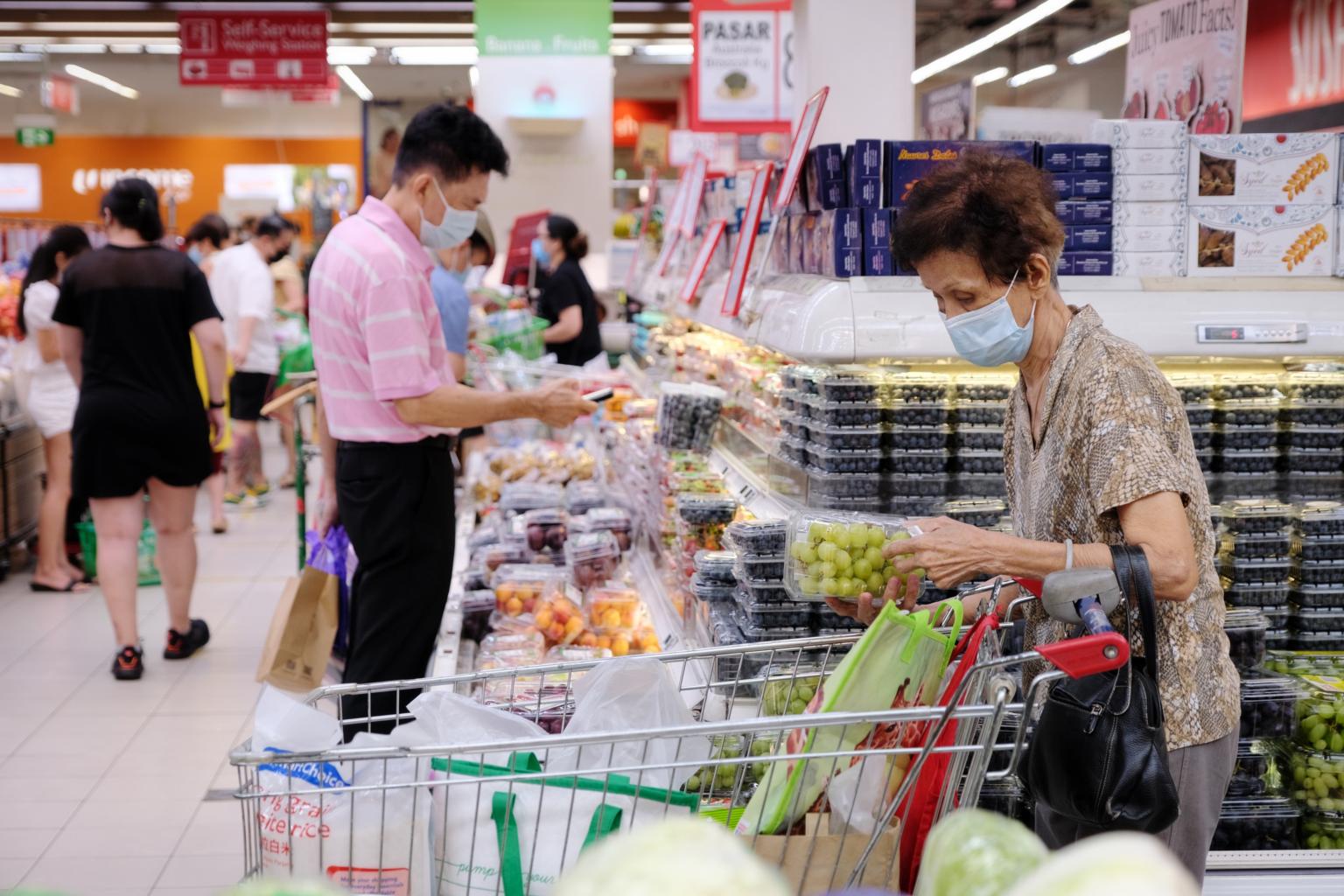Workers' Party calls $1.5b package step in right direction, but won’t support GST hike
Sign up now: Get ST's newsletters delivered to your inbox

With inflation for this year projected to hit 5 per cent, the WP said it cannot support the GST increase.
ST PHOTO: THADDEUS ANG
SINGAPORE - The Workers’ Party (WP) has said it will continue to argue against the coming GST increase, which it does not support at a time of heightened inflation risk.
Instead, it will keep pushing for alternative ways of generating revenue, such as wealth taxes or raising the reserves contribution ceiling, the opposition party said Wednesday (June 22) in a Facebook post.
WP said the $1.5 billion support package announced on Tuesday is a step in the right direction, and will provide some short-term relief to households. But it noted that the package was funded from better-than-expected fiscal outcomes from financial year 2021, meaning it was not paid for by recurring revenues or the reserves.
With inflation for this year projected to hit 5 per cent – up from March’s forecast of 3.6 per cent – the WP said it cannot support the goods and services tax increase. “Inflation continues to rise, and is at a decade high, and Singaporeans are bearing the brunt of it.”
Separately, experts said the package will help businesses and households, but more assistance might be needed if things worsen.
They said that while the package will help lower-income households and companies hardest hit by inflation, it is not expected to significantly move the needle in terms of economic growth.
The package includes initiatives such as $300 cash for eligible recipients and household utilities credit, while offering help for companies, lower-wage workers and vulnerable jobseekers.
Analysts believe these measures are just enough, without the risk of fanning the inflationary flame and worsening the situation.
Maybank Kim Eng economist Chua Hak Bin said: “The package is not too excessive, at about 0.3 per cent of GDP (gross domestic product), and targeted towards the lower-income households and firms hard hit by rising costs.”
RHB senior economist Barnabas Gan said any unexpected exacerbation of food and energy inflation this year may require another fiscal response. He said the need to address soaring costs is paramount, given the rise in global food and energy prices and Singapore’s vulnerability to imported inflation.
UOB research head Suan Teck Kin said the package is proportionate to Singapore’s Budget position and does not require the state to draw on reserves. “The amount could be partially offset by a stronger tax revenue along with a steady growth this year, a recovery in international visitor arrivals... (and) through exports, which have continued to perform well.”
Giving support packages involves a careful balance, said National University of Singapore business professor Lawrence Loh.
He said the solution must soften the blow of rising prices, but not create bigger problems like deflation and a loss of jobs.
The package will probably not be the last as cost pressures are expected to persist for some time, he added.


